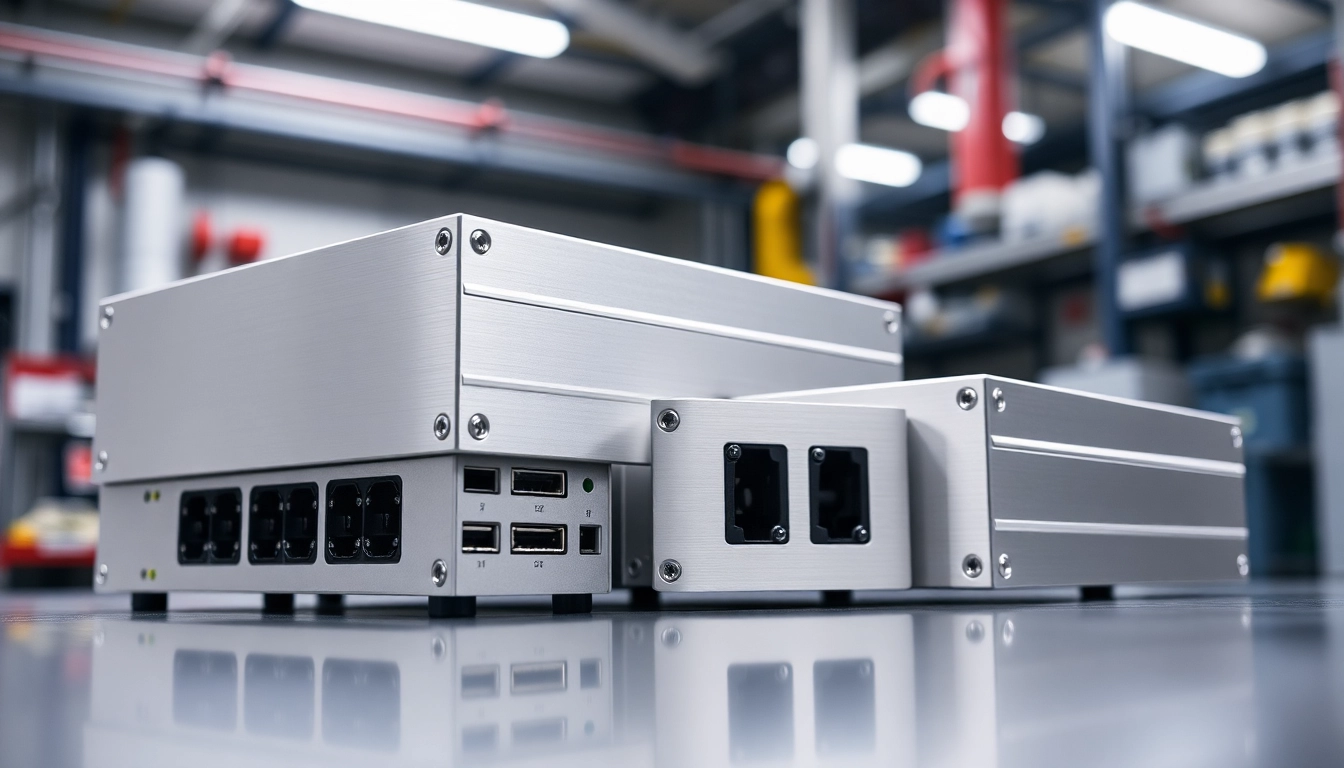How to Choose the Right Minecraft Hosting Services for Seamless Gaming
Understanding the Basics of Minecraft Hosting Services
Minecraft has become a global phenomenon, captivating players of all ages with its sandbox world of creation, adventure, and social interaction. Whether you’re hosting a small group of friends or building a large community, choosing the right minecraft hosting services is fundamental to ensuring a smooth and enjoyable gaming experience. The landscape of Minecraft hosting is diverse, with numerous providers offering different features, performance levels, and support options. To make an informed decision, it’s essential to understand what Minecraft hosting is, why it’s crucial, and the key features that set apart premium providers from the rest.
What Are Minecraft Hosting Services and Why Do They Matter?
Minecraft hosting services are specialized server solutions that allow players to run their own Minecraft servers independently of official or free hosting options. Instead of relying solely on public servers, which can be unpredictable in performance and availability, hosting your own server provides control, customization, and stability. With dedicated hosting, players can install custom mods, manage plugins, and tailor gameplay settings, resulting in a more personalized and reliable experience.
The importance of robust Minecraft hosting cannot be overstated. Reliable server performance ensures low latency, minimal lag, and continuous uptime, all of which enhance player satisfaction and keep your community engaged. Additionally, premium hosting providers incorporate advanced security and DDoS protection, safeguarding your server from malicious attacks. As gaming communities grow, scalable hosting options become critical, allowing you to expand your server capacity without re-hosting or experiencing significant downtime.
Key Features to Look for in a Hosting Provider
The landscape of Minecraft hosting is crowded, making it challenging to distinguish between options. However, certain features consistently indicate a provider’s quality and reliability. The most critical features to consider include:
- High-Performance Hardware: Modern CPUs such as Ryzen 9 and high-capacity RAM ensure the server can handle multiple players and mods seamlessly.
- Fast Storage Solutions: SSD NVMe drives drastically reduce load times, ensuring quick world loading and snappy gameplay.
- Robust Network Connectivity: Low latency connections, high bandwidth, and global CDN support enhance gameplay regardless of geographical location.
- Unlimited Slots or Flexible Player Limits: As your community grows, your hosting plan should scale accordingly.
- Advanced DDoS Protection: Protecting your server from malicious traffic is essential for uninterrupted gaming, with providers like NeoProtect offering 50+ Tbit/s global shielding.
- Excellent Support & Uptime Guarantees: 24/7 technical support and a guaranteed uptime of at least 99.9% minimize downtime and resolve issues swiftly.
- Ease of Setup & Management: User-friendly control panels, one-click modpack installations, and plugin management simplify server administration.
Common Mistakes When Selecting Minecraft Server Hosts
While choosing a host, many players fall into pitfalls that can compromise their experience. Common mistakes include:
- Opting for the Cheapest Option: Low-cost providers often lack adequate performance and security, leading to lag and downtime.
- Ignoring Uptime & Support Quality: Without reliable support and high uptime, your server may frequently crash or be inaccessible.
- Overlooking Hardware Specifications: Servers with outdated hardware cannot handle modern modpacks or large player pools efficiently.
- Failing to Consider Scalability: Small plans may restrict growth; choose providers that support easy upgrades.
Essential Factors for Optimal Minecraft Hosting Performance
Impacts of Server Hardware & Network Connectivity
Server hardware and network infrastructure are the backbone of a high-quality Minecraft experience. A server equipped with the latest multi-core processors like Ryzen 9 ensures sufficient processing power to handle complex world generation, multiple plugins, and numerous concurrent players without lag. High RAM capacity supports extensive modpacks and large worlds, preventing crashes due to memory limitations.
Equally important is network connectivity. Low-latency, high-bandwidth connections reduce lag and ensure smooth gameplay for players worldwide. A global Content Delivery Network (CDN) and server clustering allow geographically dispersed players to connect to the nearest server node, optimizing response times.
Importance of SSD NVMe Storage for Fast Load Times
SSD NVMe drives revolutionize server performance by providing high read/write speeds—up to several gigabytes per second—compared to traditional HDDs. This results in significantly reduced world and chunk loading times, quick plugin and mod data access, and rapid backups and restores. For players, this means less waiting and more gameplay, which is crucial for retention and satisfaction.
Role of DDoS Protection and Uptime Guarantees
Online gaming servers are frequent targets of Distributed Denial of Service (DDoS) attacks, which can render servers inaccessible and ruin gameplay. Leading hosting providers incorporate multilayered DDoS mitigation, such as NeoProtect’s 50+ Tbit/s global protection network, to detect and block malicious traffic in real time. An uptime guarantee of at least 99.9% ensures the server remains operational, translating into minimal disruptions and a consistent gaming environment. Reliable uptime directly correlates with user satisfaction, community trust, and growth.
How to Evaluate and Compare Minecraft Hosting Providers
Assessing Support, Scalability, and Price Options
Effective evaluation begins by examining support channels—are live chat, email, or phone support available 24/7? Support quality impacts your ability to resolve issues quickly. Scalability options, such as incremental upgrades in RAM, storage, or player slots, are vital for growth. Price transparency without hidden fees helps avoid surprises, with clear plans aligned to your community size and future expansion.
Analyzing Customer Reviews and Industry Reputation
Customer feedback offers real-world insights into service reliability, support responsiveness, and performance. Look for consistent positive reviews—like a 4.8/5 Trustpilot rating—indicating high customer satisfaction. Industry reputation can also be gauged by longevity, awards, and active community engagement.
Understanding Service Level Agreements (SLAs) and Transparency
SLAs specify uptime guarantees, support response times, and compensation policy for outages. Transparent terms demonstrate provider confidence and accountability. Ensure SLAs align with your expectations, especially regarding uptime and support responsiveness.
Best Practices for Setting Up Your Minecraft Server
Installation Tips and Modpack Management
Installing game software, plugins, and mods should be streamlined. Opt for providers that offer one-click modpack installation, automatic updates, and version control. Maintain a structured folder setup for custom mods and keep backups to prevent data loss during updates.
Configuring Plugins and Custom Features
Plugins extend functionality—adding anti-cheat, economy, or mini-games. Carefully read plugin documentation, ensure compatibility, and test in staging environments before live deployment. Proper configuration optimizes server performance and security.
Monitoring and Maintaining Server Performance
Use performance dashboards and logging tools to track resource usage, player activity, and error logs. Schedule regular backups and updates, and implement security best practices like restricted admin access. Proactive maintenance prolongs server lifespan and enhances user experience.
Maximizing Your Gaming Experience with Reliable Minecraft Hosting
Creating a Community and Managing Player Access
A successful Minecraft server thrives on community engagement. Set clear rules, moderate chat, and establish roles. Use permissions plugins and whitelist options to control access, ensuring a safe and enjoyable environment for players.
Security Measures and Data Backup Strategies
Data integrity and security are critical. Enable firewalls, anti-cheat systems, and regular backups. Store backups securely off-site or in cloud storage. Implement SSL certificates if customizing web portals to protect user data and transactions.
Scaling Up as Your Server Grows
As your community expands, upgrading hardware, bandwidth, and server locations becomes necessary. Choose providers offering seamless scaling solutions, such as instant RAM or storage upgrades, to accommodate increasing player numbers without experience downtime or lag.



